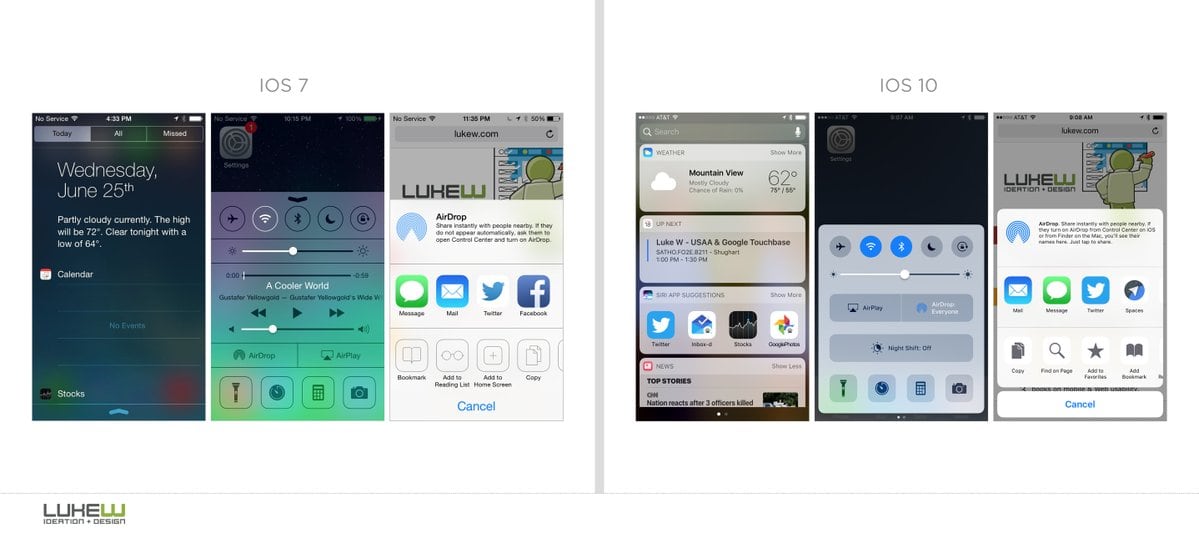
A couple days ago, designer Luke Wroblewski tweeted an image that made the rounds on “designer Twitter.” I’ve embedded the image above, where Wroblewski compares the ultra lightweight UI of iOS 7 with the relatively more weighty iOS 10.
Wroblewski’s tweet caught the attention of John Gruber, who linked to it on Daring Fireball:
This is the sort of thing that takes years of refinement to achieve. It wasn’t feasible for a 9-month project like the iOS 7 redesign to debut with this level of refinement.
He’s right about the first part: there was no way the designers working for Jony Ive could’ve gotten it right in the 9 months they spent on iOS 7. I imagine that it would take much longer than just a few months to craft a cohesive and consistent UI worthy of the <iOS 6 successor.
That gets at the heart of the issue: Apple rushed iOS 7, and iOS suffered because of it.
What Apple’s designers did in 9 months was just a start. What was released to the public in 2013 as the grand design evolution of iOS wasn’t even a beta, figuratively speaking—it was an alpha at best. It’s now some three years later, and for the most part, iOS [10] still isn’t what it should be. Again, it’s a good start, yes, but it’s not up to the level of software quality for which Apple is known.
It’s so tempting to give Apple pass in this area, because iOS 10 really is better designed than iOS 7-9. The Apple apologist in me says, “Things take time.”
But that’s not an excuse. Apple should have taken the time to perfect iOS internally. Perhaps after spending ~three years toiling away in their all-white design caves, they could have released the flattened iOS when it was ready, not when Wall Street thought iOS 6 needed a refresh.
Instead of making a big splash in 2016, when everyone might have praised Apple for doing the Apple thing and taking its time to perfect the beat, they succumbed to external pressures, and took the quick and easy path. iOS 7 was more than the annual update to the most important operating system ever—it was a message.
And the message wasn’t one Phil Schiller would have been proud of. Instead of conveying Apple’s careful attention to detail, iOS 7 suggested the opposite: it said that Apple wasn’t careful, and it showed that Apple wasn’t concerned with the details. And that’s a shame, because that’s not the Apple I know.
